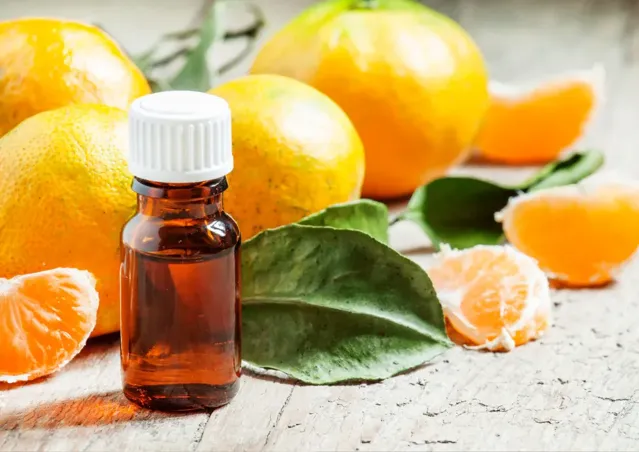Orange Fragrance Oil
Key Features
-
Don’t apply undiluted essential oil to your skin.
-
Keep the oil away from your eyes.
-
Store the oil out of reach of children and pets.
-
If you use the oil for aromatherapy, make sure that the space you’re in is ventilated well.
-
If you’re pregnant, breastfeeding, or taking prescription medications, speak to your doctor before using orange essential oil
-
lift your mood or reduce stress
-
use as a natural household cleaner
-
give flavor to a variety of foods and beverages
Product Description
Essential oils are concentrated oils that are derived from plants. Several types of oils are produced from citrus species, including oranges, lemon, and grapefruit. Orange essential oil is extracted from the rind of the sweet orange, Citrus sinensis. This is done by a method called cold pressing, which uses pressure to squeeze the oils from the rind. Sometimes, the leaves and flowers from the orange plant can be used as well. Research has shown that some essential oils may have specific health benefits. So, knowing that, what exactly are the benefits associated with orange essential oil? And how can you use it? In this article, we’ll answer those questions and help you understand how to use orange essential oil safely. How to use the oil Diffusion Perhaps you’d like to raise your mood a little? Or maybe you’d like to add the refreshing scent of orange to a room? Diffusion can help you do that. A diffuser allows an essential oil to evaporate, typically using heat. As evaporation occurs, the scent of the essential oil spreads throughout the room. There are many types of diffusers you can buy, either online or at specialty stores that sell aromatherapy products. Each type of diffuser will have its own specific set of instructions. Be sure to carefully follow all product instructions when using your diffuser. Spray Do you want another way to add an orange scent to a space? Or maybe you’d like to use orange essential oil as a natural cleaner? You can make an orange oil spray by following these steps: Add orange essential oil to water, preferably in a glass bottle. The National Association for Holistic Aromatherapy (NAHA) recommends using 10 to 15 drops per ounce of water. Although not necessary, adding a dispersing agent such as solubol to the solution can help the oil to better disperse through the water. Shake the bottle well to mix the contents. Spray as desired. Massage oil Are you looking to relieve pain or inflammation? Consider making your own massage oil infused with orange essential oil. To do this, you’ll need to dilute orange essential oil in a carrier oil, like coconut oil or jojoba oil. The NAHA suggests using 20 drops of essential oil per ounce of carrier oil to make a massage oil with a 3 percent solution. Safety and side effects Any essential oil has the potential to cause a skin reaction when applied topically. If you’re concerned about a possible reaction, test a little bit of diluted orange essential oil on the inside of your elbow before using it on larger areas. Avoid using old or oxidized orange essential oil, which can cause dermal sensitization. This is a type of allergic reaction that may not be noticeable after one use, but it can cause severe reactions after you’ve used it a few times. Some citrus essential oils are phototoxic. This means they can cause a painful skin reaction if you use them on your skin and then go out in the sun. Orange essential oil has a low risk of phototoxicityTrusted Source, but you should still exercise caution if you plan on going outside after using it on your skin. Orange essential oil has a variety of uses. These can include applications to: lift your mood or reduce stress treat skin conditions such as acne reduce pain or inflammation relieve stomach upset use as a natural household cleaner add a pleasant scent to a room or to products like perfumes and cleaners give flavor to a variety of foods and beverages Although orange essential oil has many uses, it’s important to remember that many of them are supported through anecdotal evidence. This means that the benefits are related to personal experience instead of being backed by scientific research.



